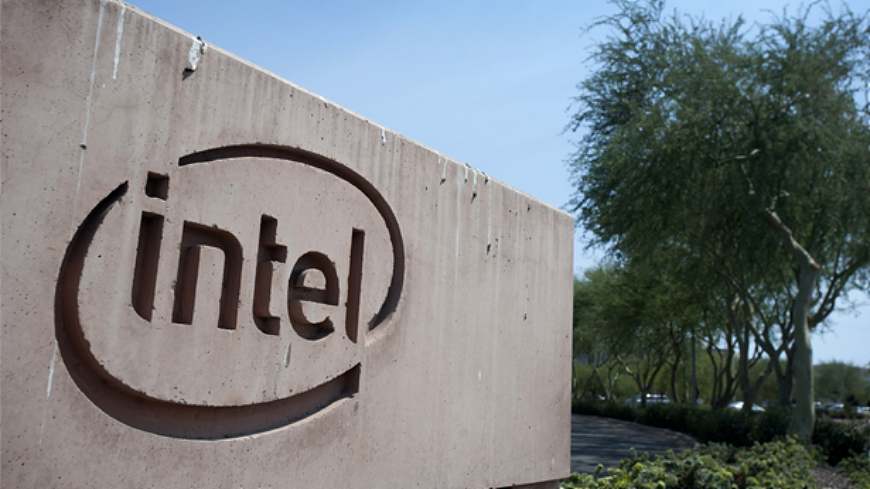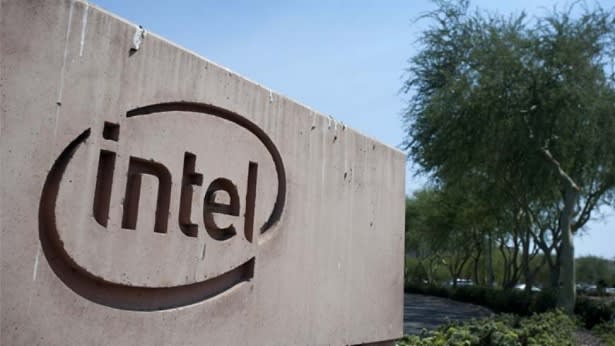

Since the merger of the technology revolution with the “old economy” in 2008-9, Intel has understood
INTEL CORPORATION
-2.82%
closure:0
opening:58.85
Tall:59.65
low:57.5
cycle:–
Page Quote News Graphs Company Profile Recommendations
More articles on the subject:
– and especially the large investors in it – that the reality in the field in which it operated and led in the first fifty years of its life (1968-2008) is changing and to its detriment, that the company is losing its focus.
The merger led to several technological developments that led to changes in both demand and supply and weakened Intel’s position as the queen of chips. These changes were the result of the advent of smart telephony, the blossoming of the digital information (IT) revolution and the decline of the personal computer that Intel, it must admit, ignored and especially ignored the decline in status that gave it a comparative advantage in processing technologies.
Lost focus – and lost market
The company’s former chief engineer, Francois Pidnoel, who left Intel in 2017 and now serves in the same role at Dimler-Benz, points to the reasons in two interesting articles, the first in general, and the second specifically about Apple’s ‘loss’ as a customer. Bottom line he claims, “Intel has lost focus.” Loss of focus, as we have seen in other similar cases, from the giant lingerie manufacturer Fruit of the Loom, IBM, GE, Nokia, T&AT and even in TEVA it is the fault of the management and the board that accompanies it, no other reason.
Recovery and rehabilitation take time
The deterioration and rehabilitation (if successful) in global giants of the Intel type takes years. In most cases the process is the same as the process of deteriorating and rehabilitating (even here if successful) empires: diagnosing the crisis, which begins due to mismanagement, takes years until management understands and takes drastic measures (“reorganization” is called). Getting out of the crisis also takes years (if at all) and here too it all depends on management. These processes are well known on Wall Street which signals its feeling about the situation in stock behavior, which begins to respond to changes in the company’s situation long before they actually happen and certainly before management takes serious steps.
This was the case in all the companies we mentioned earlier, the stocks started to react years before the companies took the crisis seriously and years before they came out of the crisis (if they came out) when throughout the process stock prices indicated the mood of investors regarding the company.
Intel CEO Brian Krzanich, who led the company from 2013 to the end of 2018 (then forced to resign as a result of a relationship with one of the facts) understood exactly what was happening and began taking steps – but these stopped when he left. The man who replaced him, Bob Swan, the company’s CFO , Was in fact a temporary CEO because from the moment eight it was clear to the board and much clearer to investors that a drastic and rapid change was needed.
Companies take time to realize that they are in crisis – investors are signaling the way for them
Despite the understanding of the urgency required for re-organization one had to have events like the crisis with Apple and the non-compliance with the CPU schedule to make a drastic decision, and bring in an “outside” manager. It is important to understand two more recurring truths in Intel-type companies and all the others we mentioned, in a time of crisis: the first, that until there is no choice “management stays at home.” That is, bringing in an outsider who is not one who grew up in society is a long and difficult process. Why? So!! So it was with all the companies we mentioned, check it out. Second, the leading investors (shareholders) are the catalyst, it is they who ultimately influence the decision. In this case led by activist investor Daniel Loeb, whose hedge fund holds about 5% of the shares. Loeb, who has gathered many shareholders around him, has in effect forced the management to “make a strategic and managerial change including bringing in an outside CEO who in this case, which facilitated the decision, is considered an” Intel man “.
Intel has found the right man this time
Pat Gelsinger, 59, has worked in the technology industry for over 40 years, 30 of them (1979-2009), worked at Intel (he started studying for a bachelor’s degree in electrical engineering at the University of California and when he did his M.SC at Stanford). He is the man who developed the Intel 80386 processor, who became a super-expert in the field of processing and eventually reached the position of the company’s chief technology officer.
In 2009 he left and moved, as Operations Manager, to the information giant EMC (now owned by DELL) and in 2012 he accepted the position of CEO of VMware (NYSE: VMW), one of the most interesting and advanced software companies in the world founded by the Jewish genius Professor Mendel Rosenblum of Stanford And Mrs. Diana Green who led VMW until the arrival of Glasinger and ran Google. VMware’s R&D Center in Israel (since 2008) and Glasinger has been to Israel more than 60 times. Prior to taking up his position at VMware, he was one of the preferred candidates for Microsoft management (NYSE: MSFT) and lost to Satya Nadella.
A company’s success has 3 factors: a manager and a manager
In terms of Wall Street, Intel has found the right man to get out of the crisis and the stock response on the day of the appointment proves it and since we follow the man since he came to VMware (as veteran readers know we believe a company’s success depends on three factors: manager, manager and manager. ) There doubled the size of the company from sales of 2.024 billion in 2009 to 11.546 in 2020 and earnings per share from 49 cents to $ 6.41 when the stock rose 6.5 times.
Now analysts are optimistic – will that be enough?
“It will take time,” writes Joseph Moore, senior analyst at Morgan Stanley, “but with Pat Glasinger at the helm you can see the light at the end of the tunnel and we are raising the recommendation to buy with a target price of 70.”
Morgan’s Joseph Moore is not the only analyst who has been quick to praise Glasinger’s choice. “Given Glasinger’s understanding and recognition of Intel, his technological expertise and proven management ability,” wrote analyst Gus Richard of Northland, “he is probably the best candidate they have found” and even popular commentator Kramer believes so.
The big question is can Intel regain its position in the field of processing technologies to a level that will return to be a relative advantage for it? The advantage that historically has enabled Intel to lead came from the direction of its internal capabilities to develop and produce. What happened to the 10nm (dark case) and competition from Taiwan’s semiconductor, which is only growing alongside competition with AMD, which is also getting stronger, raises doubts about Intel’s ability to “return” to its historic position but according to Morgan Stanley Intel does not have to be better than AMD or Taiwan, enough to offer processing technologies at the same level, “This, for a company with marketing power like Intel (and with one like Glasinger at the helm),” writes Joseph Moore, “will suffice.”
Intel’s new CEO admires Israel – and that’s great for the local market
The Israeli angle: In the summer of 2019, Glasinger, accompanied by the CEO of the global placement company Crossover from Texas, Andy Triba, visited Israel, “as we do all the time in search of talent,” he replied to the questioners. You should read what Glasinger writes about his stay in Israel. A friend, he is a fan of Israel, partly because he is a devout Christian, very close to evangelism, but mainly because of his appreciation for the capabilities that are open here.
Why is this important? Because last summer Intel dropped a real bomb on the capital market when it announced that it did not rule out outsourcing which dropped the stock by 16% that day. Although the stock fell due to the fear that Intel admits that it has lost the supremacy in processor development, which strengthened the claim that Intel is in decline. But here in Israel, which excels in self-flagellation and creating an atmosphere of melancholy, there has been talk of reducing Intel’s activity in Israel as a result of the decision. This would severely hurt Israel because Intel is the leading technology exporter and largest employer in Israel.
In our opinion, the chances of such a thing are extremely low, since Intel is actually moving in the direction of expanding operations in Israel and the appointment of Glasinger alongside the increase in activities that the amusement professor develops at Intel makes it almost nil, even though there are rumors of an acquisition or merger between Intel and VMware. The cloud when a large part of the project is done in our places.
